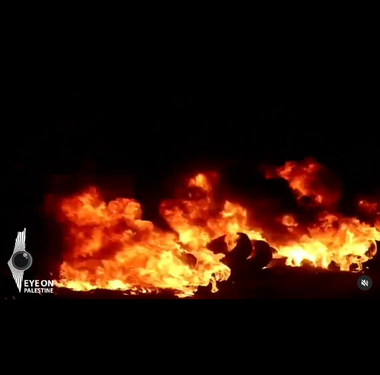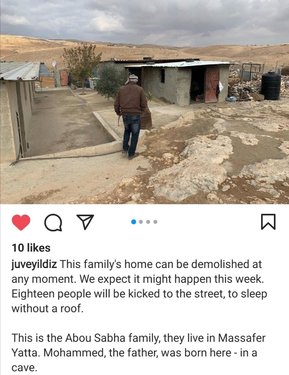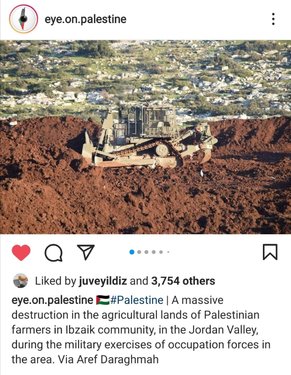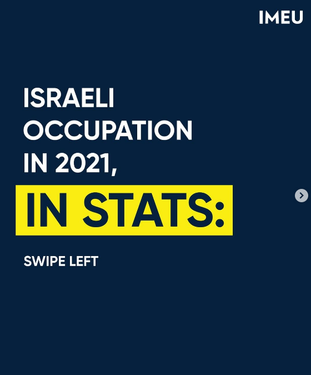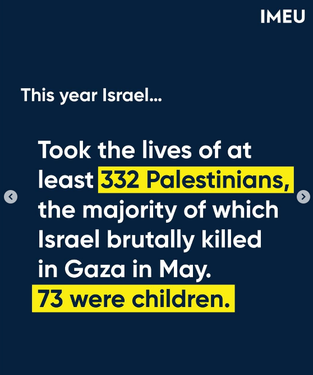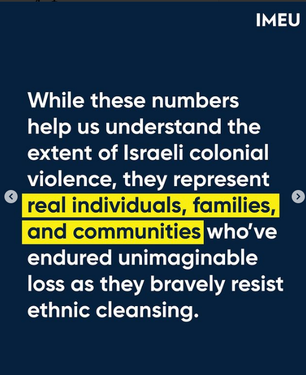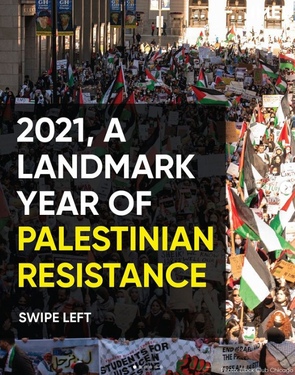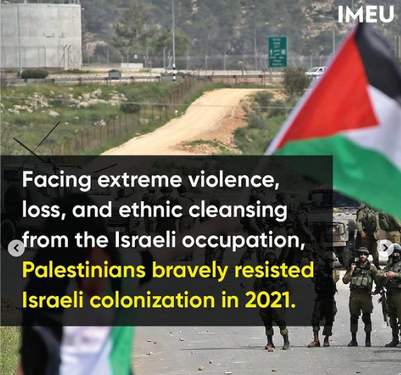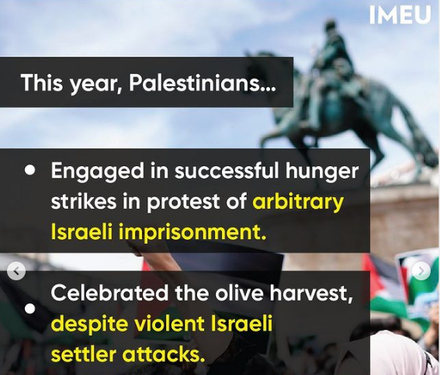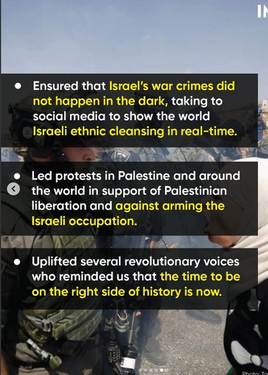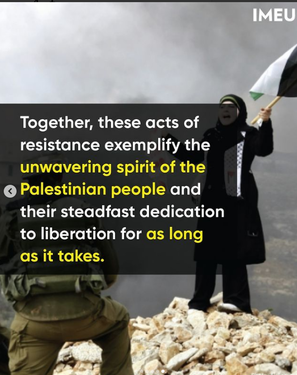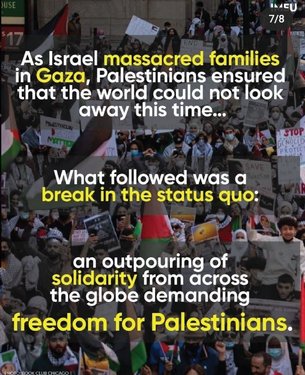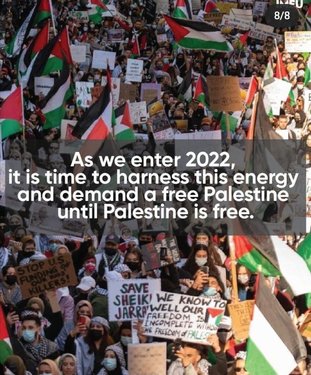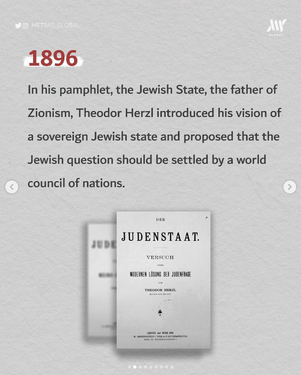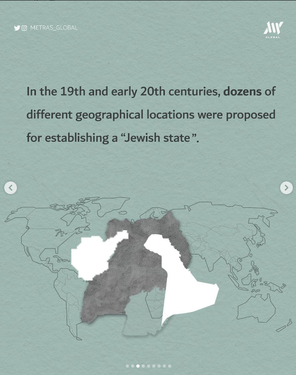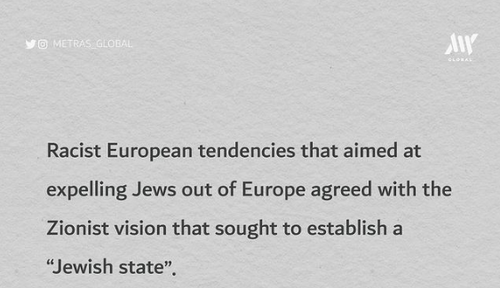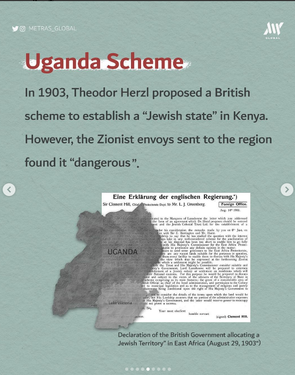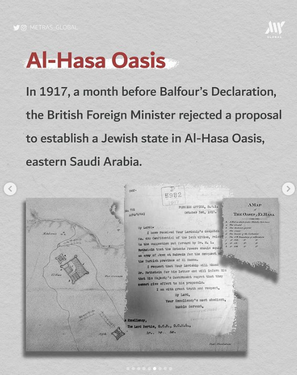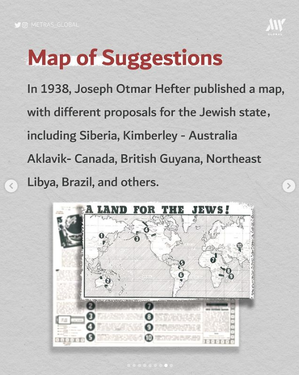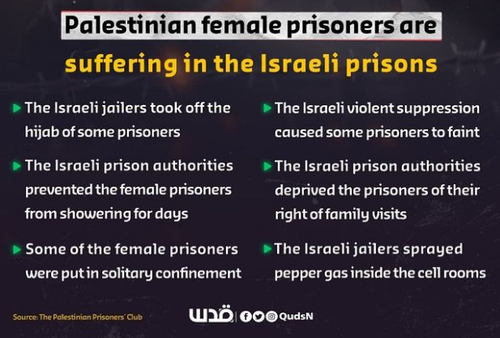-
Posts
8,434 -
Joined
-
Days Won
771
Content Type
Profiles
Forums
Events
Everything posted by ummtaalib
-
After worldwide solidarity with Palestinian prisoner Hisham Abu Hawash, it looks like an agreement has been reached for his release in February 2022 - some sources say he has suspended his hunger strike while others say he continues until papers are signed
-
Hunger Striker on 141st day without compassion from Israhellis! The Palestinian prisoner Hisham Abu Hawash continues his hunger strike in protest of his administrative detention without charge or trial in the Israeli occupation jails. #FreeThemAll Palestinians protesting in many villages and towns in solidarity with the Palestinian prisoner Hisham Abu Hawash. Palestinians protesting at entrance of Beita village, southern Nablus, in solidarity with the Palestinian prisoner Hisham Abu Hawash. Eye On Palestine (@eye.on.palestine) • Instagram photos and videos
-
Daily Demolitions continue.... Israeli bulldozers razing large areas of land in the village of Kufr al-Dik, to the west of Salfit city.
-
Amid global silence, Israeli forces killed nearly 360 Palestinian civilians in 2021: Report Israeli forces have killed 357 Palestinians in 2021 amid the silence of the international community over the regime's increasing acts of violence against civilians, a report by an NGO says. The secretary general of the National Association of the Martyrs' Families of Palestine, Muhammad Sbeihat, said on Saturday that the body has carried out field research and investigations in various provinces and found out that all these Palestinians were killed at the hands of the Israeli regime last year. The report showed that some 19 percent of those killed were women, which is the highest figure in the history of the Israeli regime's crimes and acts of violation after its occupation of Palestinian land in 1948. The report added that 22 percent of those martyred were children, emphasizing that silence of the international community has encouraged Tel Aviv to commit such crimes against the Palestinian people. The global silence towards Israel's crimes has encouraged the regime to ignore and belittle blood of the Palestinian people of all ages. Sbeihat also called on the international community, humanitarian institutions and the Palestinian Authority, particularly the Palestinian ministries of justice and foreign affairs to pursue legal prosecution of Israeli officials in international courts. Rights advocates say that Israeli forces have adopted a “shoot-to-kill” policy during clashes with Palestinians, even in clear cases where they could be captured. Tel Aviv has been criticized for its extensive use of lethal force and extrajudicial killing of Palestinians who do not pose an immediate threat to its forces or to settlers. Israeli troops have on numerous occasions been caught on camera, brutally killing Palestinians, with the videos going viral online and sparking international condemnation. Late last month, Israeli forces shot and injured a 16-year-old Palestinian boy during clashes in Kufr Qaddoum area in the northern part of the occupied West Bank. Sources and witnesses said that the teenager was shot in the chest with a rubber-coated steel bullet fired by the Israeli forces during clashes in the area. The Israeli regime occupied the West Bank in 1967 before starting to dot the Palestinian territory with illegal settlements and severely restricting the Palestinians' freedom of movement there. Palestinians want the West Bank as part of a future independent Palestinian state with East al-Quds as its capital. Source
-
-
-
-
Parents Leading by Example Rasulullah (sallallahu ‘alaihi wasallam) was the greatest of Allah Ta‘ala’s creation. Allah Ta‘ala selected him as His final Messenger and blessed him with the greatest Deen – the Deen of Islam which is the most perfect code of life for man to follow. When one examines the blessed personality of Rasulullah (sallallahu ‘alaihi wasallam), then one finds that Allah Ta‘ala blessed him with the highest standard of character and nobility so that he could serve as the ultimate example for humanity to emulate until the end of time. Thus, every dimension of the blessed life of Rasulullah (sallallahu ‘alaihi wasallam) was exemplary and outstanding. Whether in the home, while conducting as a husband to his wife and father to his children, or whether in the musjid, as the imaam of the congregation, or in the community as the leader of the Muslims, he conducted in the most perfect manner and set the best standard for all people to follow. Hence, in the upbringing of a child, until and unless the parents do not emulate the blessed lifestyle and character of Rasulullah (sallallahu ‘alaihi wasallam), bringing his sunnah into their lives and home, they will not see and achieve the desired results in their child’s upbringing. Merely tutoring the child by giving him Islamic education and verbally advising him regarding good morals and values will not prove effective if the parents’ actions, conduct and lifestyle oppose their words. When one studies the lives of the Sahaabah (radhiyallahu ‘anhum) and the way they tutored their children and steered them towards good morals and values, the glaring aspect that stands out is that they practiced what they preached and their actions were testimony to their words. Together with the parents leading lives of piety and righteousness, thereby becoming good examples for their children, they should also teach their children to fulfill the rights of Allah Ta‘ala and the rights of the creation. They should guide them regarding oral, physical and spiritual cleanliness, and a great emphasis should be laid on social conduct and etiquette. When Rasulullah (sallallahu ‘alaihi wasallam) taught the Sahaabah (radhiyallahu ‘anhum) deen, his teachings were comprehensive and covered all dimensions of human living. Hazrat Anas (radhiyallahu ‘anhu) was the special attendant of Rasulullah (sallallahu ‘alaihi wasallam) who was honored with the golden opportunity of serving Rasulullah (sallallahu ‘alaihi wasallam) for ten years until the demise of Rasulullah (sallallahu ‘alaihi wasallam). During this period of ten years, Rasulullah (sallallahu ‘alaihi wasallam) conducted with him with affection and love and taught him deen. He says, “I served Rasulullah (sallallahu ‘alayhi wasallam) for ten years. During this period, he never hit me, spoke to me harshly, scolded me, or even looked at me sternly.” Among the golden advices and teachings which Rasulullah (sallallahu ‘alaihi wasallam) imparted to him are the following: Education regarding Fulfilling the Rights of Rasulullah (sallallahu ‘alaihi wasallam) and the Creation “O my beloved son! Keep my secrets confidential, and you will become a true believer.” Hazrat Anas (radhiyallahu ‘anhu) says, “After Rasulullah (sallallahu ‘alaihi wasallam) gave me this advice, I never divulged his secrets to anyone, despite my mother and the respected wives of Rasulullah (sallallahu ‘alayhi wasallam) enquiring from me (while being unaware that what Rasulullah (sallallahu ‘alaihi wasallam) had mentioned to me was confidential).” Rasulullah (sallallahu ‘alaihi wasallam) also said, “O my beloved son! If you are able to constantly send durood upon me then do so, as the angels will beg Allah Ta‘ala for your forgiveness.” Education regarding Physical and Oral Hygiene and the Great Virtue of Cleanliness “Rasulullah (sallallahu ‘alaihi wasallam) also said to me, “O my beloved son! Ensure that you make a complete wudhu. If you do so, then the two angels (who are recording your deeds) will love you and you will be granted barakah in your life. O Anas! When you have a fardh bath, then wash your body thoroughly. Through washing your body, you will be cleansed of all your minor sins.” I then asked Rasulullah (sallallahu ‘alaihi wasallam), “How should I ensure that I have washed my body thoroughly?” Rasulullah (sallallahu ‘alayhi wasallam) replied, “When bathing, ensure that you wet the roots of your hair and thoroughly rub the skin of your body.” “O my beloved son! Remain in the state of wudhu if you are able to, for the one who passes away in the state of wudhu acquires the rank of a shaheed (a martyr).” Education regarding Fulfilling the Rights of Allah Ta‘ala by Performing Salaah “O my beloved son! Try to offer some (nafl) salaah in your home as well. O Anas! When you make ruku, then ensure that you grasp your knees firmly, spread your fingers apart and keep your elbows from your sides. O my beloved son! When you raise your head from ruku, allow all your limbs to settle and be calm (before proceeding into sajdah), as on the Day of Judgement, Allah Ta‘ala will not look with mercy at the one who does not keep his back straight when waking up from ruku. O my beloved son! When you make sajdah, place your head and palms firmly on the ground, and do not make sajdah so rapidly that it is like the pecking of a rooster, and do not place your forearms on the ground in sajdah, resembling the sitting of a dog or fox. Refrain from looking around in salaah, as this action is a means of destroying (the reward of) your salaah.” Education regarding Social Conduct and Thinking Good of Every Muslim “O my beloved son! When you come out from your home, then make salaam to every Muslim that you see, for if you do so, you will return home cleansed from your minor sins. O my beloved son! When you enter your home then make salaam to your household members.” In one narration, Rasulullah (sallallahu ‘alaihi wasallam) said, “When you leave your home, then on seeing any Muslim, you should feel in your heart that he is better than you.” Education on Raising Children Hazrat Anas (radhiyallahu ‘anhu) reports that Rasulullah (sallallahu ‘alaihi wasallam) said, “On the seventh day after the child is born, the aqeeqah should be performed, he should be given an Islamic name and his head should be shaved. When the child reaches the age of seven, he should be taught Islamic etiquette and manners. When he reaches the age of nine, his bed should be separated from his siblings. When he reaches the age of thirteen, he should be disciplined and hit if he does not perform salaah or fast. When he reaches the age of sixteen or seventeen, his father should get him married. Thereafter, his father should hold his hand and address him saying, ‘I have taught you Islamic etiquette, I have educated you in deen and I have got you married. I seek refuge in Allah from you becoming a means of fitnah and trial for me in this world and a means of punishment for me in the Hereafter.” (Ithaaf 6/316) Education regarding Upholding Every Sunnah and the Formula for Gaining Entry into Jannah “O my beloved son! If you are able to spend your day and night without having malice for anybody in your heart, then do so, as this will make your hisaab (accountability in the court of Allah) easy.” Rasulullah (sallallahu ‘alaihi wasallam) also said, “O my son! This (i.e. keeping your heart clean at all times) is my sunnah. The one who loves my sunnah loves me, and the one who loves me will be with me in Jannah. O my beloved son, if you adhere to these advices of mine then there will be nothing more beloved to you than death.” (Sunan Tirmizi #2678, Majma’uz Zawaa’id #1470 and Ibnu ‘Asaakir 9/253) From the above, we can understand the great importance of imparting deeni knowledge and understanding to the child, as well as the loving, gentle and compassionate approach Rasulullah (sallallahu ‘alaihi wasallam) adopted when teaching Hazrat Anas (radhiyallahu ‘anhu). When the child is taught deen with such love and care, he will have enthusiasm and eagerness for deen in his heart, and will thereafter live his life in accordance with the dictates of deen. Source
-

Pakistan Cricket Team Praying at T20 World Cup
ummtaalib replied to ColonelHardstone's topic in General Islamic Discussions
Post edited and link removed Please see forum rules. No advertisement permitted -
Writing Durood when writing the Blessed name of Rasulullah (sallallahu ‘alaihi wasallam) عن أبي هريرة قال: قال رسول الله صلى الله عليه وسلم: من صلى علي في كتاب لم تزل الملائكة تستغفر له ما دام اسمي في ذلك الكتاب (المعجم الأوسط للطبراني، الرقم: ١٨٣٥، وسنده ضعيف كما في كشف الخفاء، الرقم: ٢٥١٨) Hazrat Abu Hurairah (radhiyallahu ‘anhu) reports that Hazrat Rasulullah (sallallahu ‘alaihi wasallam) said, “Whoever sends Durood upon me through writing the Durood in a kitaab, the angels continue seeking forgiveness on his behalf as long as my name remains in that kitaab.” Happiness of Hazrat Umar (radhiyallahu ‘anhu) Hazrat Umar (radhiyallahu ‘anhu) once said to Hazrat Abbaas (radhiyallahu ‘anhu) [the uncle of Hazrat Rasulullah (sallallahu ‘alaihi wasallam)], “I was more pleased with your Islam than the Islam of my father, for your Islam gave more pleasure to Rasulullah (sallallahu ‘alaihi wasallam) than the Islam of my father.” (Sharhu Ma’anil Aathaar 3/321) يَا رَبِّ صَلِّ وَ سَلِّم دَائِمًا أَبَدًا عَلَى حَبِيبِكَ خَيرِ الخَلْقِ كُلِّهِمِ ihyauddeen.co.za
-
Palestine was the destination for the realization of the Jewish state colonial project, but what countries were also proposed for the Zionist colonization? MetrasGlobal (@metras_global) • Instagram photos and videos
-
1. Objective of visiting the graveyard; When one visits a graveyard, one's intention should be to remind himself of death and the life after death and to jolt oneself to prepare for that. Rasulullah (salallahu alayhi wa sallam) has said; كُنْتُ نَهَيْتُكُمْ عَنْ زِيَارَةِ الْقُبُورِ، فَزُورُوهَا؛ فَإِنَّهَا تُزَهِّدُ فِي الدُّنْيَا، وَتُذَكِّرُ الْآخِرَةَ سنن ابن ماجه (1/ 501) “I had prohibited you from visiting the graveyard, now visit it because it (the visiting) withdraws one from the world and reminds of the hereafter”. (Sunan Ibne Majah). 2. When one enters the graveyard he should read; [1] السَّلَامُ عَلَيْكُمْ أَهْلَ الدِّيَارِ مِنَ الْمُؤْمِنِينَ وَالْمُسْلِمِينَ، وَإِنَّا، إِنْ شَاءَ اللهُ لَلَاحِقُونَ، أَسْأَلُ اللهَ لَنَا وَلَكُمُ الْعَافِيَةَ Transliteration: Assalam alaykum ahlad diyaar minal mu`mineen wal muslimeen. Wa inna in sha Allahu bikum lahikuun. As`alullaha lana walakumul aafiyah Translation: Peace be on you, O believing dwellers of this dwelling, soon when Allah wishes we shall meet together. I ask Allah A`fiyya for us and for you. 3. One should give due respect to the deceased as he would have given him when he was alive, Rasulullah (salallahu alayhi wa sallam) has mentioned; "كَسْرُ عَظْمِ الْمَيِّتِ كَكَسْرِهِ حَيًّا" سنن ابن ماجه ت الأرنؤوط (2/ 541) “Breaking the bone of a deceased is like breaking his bone whilst he was alive” (Sunan Ibne Majah) 4. One should abstain from trampling any grave as we have been warned against it in a Hadith; نَهَى النَّبِيُّ صَلَّى اللَّهُ عَلَيْهِ وَسَلَّمَ أَنْ تُجَصَّصَ القُبُورُ، وَأَنْ يُكْتَبَ عَلَيْهَا، وَأَنْ يُبْنَى عَلَيْهَا، وَأَنْ تُوطَأَ. سنن الترمذي ت بشار (2/ 359) “Nabi (salallahu alayhi wa sallam) has prohibited that graves be solidified, something be written on them, something be built on it or it be trampled” (Sunan-at-Tirmidhi) 5. One should abstain from sitting on a grave as Nabi (salallahu alayhi wa sallam) has said; «لَأَنْ يَجْلِسَ أَحَدُكُمْ عَلَى جَمْرَةٍ فَتُحْرِقَ ثِيَابَهُ، فَتَخْلُصَ إِلَى جِلْدِهِ، خَيْرٌ لَهُ مِنْ أَنْ يَجْلِسَ عَلَى قَبْرٍ» صحيح مسلم (2/ 667) (It is better that one of you sits on a burning amber and it burns his clothes and gets on his skin than sitting on a grave). (Saheeh Muslim) We can see the severity of sitting on graves from this hadith. 6. One should make as much dua, istigfaar and tilaawat as he wishes and make the intention that the reward of that reading be a gift for the deceased (this will not decrease the reward of the reader himself). N.B a person can make an intention that the reward be passed to all muslims who have passed away.[2] 7. It is preferable one reads Surah Yaseen, Sura Mulk, Surah Fatiha, Surah Zilzaal, Surah Takaathur, Surah Ikhlaas and Ayatul Kursi. 8. One should abstain from talking about worldly matters, since the graveyard is a place to remind one of death and the hereafter. 9. One may raise his hands and make dua as long as raising the hands does not resemble those who worship graves. If making dua creates such an impression, face the qibla when making dua. 10. When visiting the graveyard, one should use the opportunity to make Tawba, Istigfaar and to reform oneself. Think of the day one will be placed in the Qabr (grave). As much as the deceased appreciate our visiting them and sending thawaab, a person should also make his own preparation for death whilst he is alive. And Allah Ta`ala Knows Best. Checked and Approved by: Mufti Ebrahim Desai (Rahimahullah) [1] صحيح مسلم (2/ 671) [2] 229 مراقي الفلاح شرح نور الإيضاح (ص: والأصح أن الرخصة ثابتة للرجال والنساء فتندب لهن أيضا "على الأصح" والسنة زيارتها قائما كما كان يفعل رسول الله صلى الله عليه وسلم في الخروج إلى البقيع ويقول: "السلام عليكم دار قوم مؤمنين وإنا إن شاء الله بكم لاحقون أسأل الله لي ولكم العاقبة" "ويستحب" للزائر "قراءة" سورة "يس لما ورد" عن أنس رضي الله عنه "أنه" قال قال رسول الله صلى الله عليه وسلم: "من دخل المقابر فقرأ سورة يس" يعني وأهدى ثوابها للأموات "خفف الله عنه يومئذ" حاشية الطحطاوي على مراقي الفلاح شرح نور الإيضاح (ص: 620) والسنة زيارتها قائما كما كان يفعل رسول الله صلى الله عليه وسلم في الخروج إلى البقيع ويقول "السلام عليكم دار قوم مؤمنين وإنا إن شاء الله بكم لاحقون أسأل الله لي ولكم العافية" "ويستحب" للزائر "قراءة" سورة "يس لما ورد" عن أنس رضي الله عنه "أنه" قال قال رسول الله صلى الله عليه وسلم: "من دخل المقابر فقرأ" سورة "يس" يعني وأهدى ثوابها للأموات "خفف الله عنه يومئذ" العذاب ورفعه" وكذا يوم الجمعة يرفع فيه العذاب عن أهل البرزخ ثم لا يعود على المسلمين "وكان له" أي للقارئ "بعدد ما فيها" رواية الزيلعي من فيها من الأموات "حسنات" وعن أنس أنه سأل رسول الله صلى الله عليه وسلم فقال: يا رسول الله إنا نتصدق عن موتانا ونحج عنهم وندعو لهم فهل يصل ذلك إليهم فقال: "نعم إنه ليصل ويفرحون به كما يفرح أحدكم بالطبق إذا أهدي إليه" رواه أبو جعفر العكبري: الدر المختار وحاشية ابن عابدين (رد المحتار) (2/ 242) ويقول: السلام عليكم دار قوم مؤمنين، وإنا إن شاء الله بكم لاحقون ويقرأ يس، وفي الحديث «من قرأ الإخلاص أحد عشر مرة ثم وهب أجرها للأموات أعطي من الأجر بعدد الأموات الفتاوى الهندية - ط. دار الفكر (5/ 350) يستحب زيارة القبور وكيفية الزيارة كزيارة ذلك الميت في حياته من القرب والبعد كذا في خزانة الفتاوى وإذا أراد زيارة القبور يستحب له أن يصلي في بيته ركعتين يقرأ في كل ركعة الفاتحة وآية الكرسي مرة واحدة والإخلاص ثلاث مرات ويجعل ثوابها للميت يبعث الله تعالى إلى الميت في قبره نورا ويكتب للمصلي ثوابا كثيرا ثم لا يشتغل بما لا يعنيه في الطريق فإذا بلغ المقبرة يخلع نعليه ثم يقف مستدبر القبلة مستقبلا لوجه الميت ويقول السلام عليكم يا أهل القبور ويغفر الله لنا ولكم أنتم لنا سلف ونحن بالأثر كذا في الغرائب وإذا أراد الدعاء يقوم مستقبل القبلة كذا في خزانة الفتاوى وإن كان شهيدا يقول سلام عليكم بما صبرتم فنعم عقبى الدار وإذا كان قبور المسلمين مختلطة بقبور الكفار يقول السلام على من اتبع الهدى ثم يقرأ سورة الفاتحة وآية الكرسي ثم يقرأ سورة إذا زلزلت وألهاكم التكاثر كذا في الغرائب Fataawa Mahmudiyya, Vol 9, Pg 186, Faaruqiyya. Ahkaam-e-mayyit Pg 94. Aap ke masaail or un ka hal, Vol 3, Pg 185
-
Israeli atrocities against the Palestinian people on the increase! Today, Huge Israeli forces and bulldozers stormed the village of Al-Atrash in Al Naqab, southern the 1948-occupied Palestinian territories, and razed large area of land. Eye On Palestine (@eye.on.palestine) • Instagram photos and videos The Israeli occupation forces demolish a Palestinian home in Sendas area, southern Hebron. (Soldiers watching women crying and children looking lost seem inhumane!!) Eye On Palestine (@eye.on.palestine) • Instagram photos and videos The Israeli occupation forces detained 11 Palestinians during military raids in the occupied West Bank. Eye On Palestine (@eye.on.palestine) • Instagram photos and videos The Israeli occupation forces detained a Palestinian young man while he was passing by a protest in solidarity with the Palestinian prisoner Hisham Abu Hawash in the occupied city of Haifa today. The young man just showed his support to the demonstrators by honking his car horn Eye On Palestine (@eye.on.palestine) • Instagram photos and videos
-
Above series taken from Life with Allah an initiative of Ummah Welfare Trust which aims to connect the creation to The Creator
-
How to Attain Khushuʿ 2: Attain the Maʿrifah of Allah One of the greatest means of attaining khushūʿ in ṣalāh is the maʿrifah of Allah (subḥānahū wa taʿālā). Maʿrifah refers to a deep awareness and knowledge of Allah (subḥānahū wa taʿālā). The greater your knowledge of Allah, the greater the level of khushūʿ you will develop. Knowledge of Allah is a prerequisite for worshipping Him. Allah (subḥānahū wa taʿālā) states, “I only created jinn and men so that they worship Me” (51:56). Worshipping Allah means submitting yourself to Him, humbling yourself to Him and loving Him. However, how can we love Him if we do not know Him? What should the maʿrifah of Allah lead to? A deep awareness and knowledge of Allah (subḥānahū wa taʿālā) will make you shy of Allah, increase your love for Him and attach your heart to Him. You will be left in awe of Him and will always long to meet Him. You will repeatedly turn to Him broken in repentance. You will hastily run away from the creation to enjoy seclusion with Him. Striving to attain these qualities is a continuous effort, and not a single struggle. It is a lifelong journey that will only end when we meet Him and He is pleased with us, inshāAllah. How can you attain the maʿrifah of Allah? 1) Through tadabbur: Tadabbur is to reflect and ponder on the ‘āyāt’ (verses) of the Noble Qur’ān. 2) Through tafakkur: Tafakkur is to reflect on the numerous ‘āyāt’ (signs) of Allah that surround us. Allah says, “We will show them Our signs in the horizons and within themselves until it becomes clear to them that it is the truth” (41:53). The Qur’ānic verses (āyāt) continuously remind us of the many signs (āyāt). These include the sun, moon, stars, sky, rain, animals, mountains and the human being himself. 3) Through His Beautiful Names. This is only possible through a deep understanding of Allah’s Excellent Names, their Majesty and their Perfection; and realising that He is the Only One to whom these Names belong. Ibn al-Qayyim (raḥimahullāh) wrote, “The key to the daʿwah of the Messengers and the essence of their Message, is knowing Allah through His Names, His Attributes, and His Actions. This is the foundation which the rest of the Message, from beginning to end, is based upon.” Allah said, “To Allah Alone belong the most Beautiful Names, so call on Him by them.” (7:180) The Messenger of Allah ﷺ said, “Indeed Allah has 99 Names; whoever preserves them will enter Paradise” (Muslim). Ibn al-Qayyim (raḥimahullāh) wrote, “There is no greater need of the soul than its need to know its Creator and Originator. And there is no way to achieve this except through knowing His Attributes and Names. The more a slave knows them, the more he will know Allah (ʿazza wa jall), the more he will seek Him and the closer he will be to Him. Similarly, the more ignorant the slave is of His Names and Attributes, the more ignorant, disliked and further away from Him he will be. The status which the slave enjoys in the eyes of Allah is dependent on the status the slave himself accords Allah in his heart. Thus, journeying to Allah through the path of His Names and Attributes is truly an amazing matter. The doors it opens are astounding.” Throughout your ṣalāh, bring the rich meanings of Allah’s Names to the forefront of your mind. Doing this will help you feel that you are directly conversing with Him, and thereby it will increase your closeness to Him. 4) By worshipping Him as much as possible. Maʿrifah itself is one of the greatest forms of worship. Other acts of worship – including dhikr, duʿā’, reciting the Qur’ān and ṣalāh – will increase your maʿrifah. It’s a cycle: the more you know Allah (subḥānahū wa taʿālā), the more you will worship Him. And the more you worship Him, the more you will know Him. Performing ṣalāh with khushūʿ, is one of the greatest means of attaining His maʿrifah. In summary, increasing your knowledge of Allah is one of the best ways to achieve khushūʿ. Once you get to know Him – through His signs, through His Names, through His Book and through worshipping Him – your awe, veneration and love of Him will increase. Your own self-importance will meanwhile decrease. Both of these will help your body and heart to humble themselves to Allah and allow you to taste the sweetness of khushūʿ.
-
How to Attain Khushuʿ 1: Appreciate The Importance Of Salah The first step to developing khushūʿ is to understand and appreciate the importance of ṣalāh itself. After the obligation of attesting to the Oneness of Allah (tawḥīd), there is no greater commandment in Islam than ṣalāh. Ṣalāh is the second pillar of Islam and the prime connection between a slave and his Master. It is the first act which he will be held accountable for on the Day of Judgement: if it is good, he will be saved and will succeed; if it is not good, he will be doomed and be amongst the losers. Ṣalāh is the crucial factor that distinguishes the believers from the disbelievers. By preserving your ṣalāh, you are preserving your dīn. Maintaining your ṣalāh will give you a special light (nūr) in your heart, face and in your grave. On the Day of Judgement, your ṣalāh will come to your rescue and will be your special ‘light’. However, those who do not pray will find themselves with Firʿawn, Qārūn, Hāmān and Ubayy b. Khalaf: the worst of mankind. Ṣalāh is the purification of the soul. It cleanses your sins and protects you from all harm. Ṣalāh is your oxygen, without which you will die. If you do not perform your ṣalāh, although you may be ‘alive’ in the physical sense, you are spiritually ‘dead’. Ṣalāh is unique because it was made compulsory upon the Prophet ﷺ and his ummah during the Night Journey and Ascension (laylat al-isrā’ wal-miʿrāj). He personally received this commandment without any intermediaries from above the seven heavens. Even on his deathbed, despite being weak and in agony, the Prophet ﷺ never forgot his ummah. He exhorted, “Ṣalāh, ṣalāh and your slaves.” These were his parting words and his final waṣiyyah (last will) to us. Why Do We Perform Salah? To fulfil the purpose of our life i.e. to worship Allah To uphold the command of Allah To remember Allah (subḥānahū wa taʿālā) and become closer to Him To humble ourselves & express our need to Him To appreciate and show gratitude to Allah To converse privately with the Lord of the worlds To separate ourselves from those in kufr (disbelief) To safeguard ourselves from sins and evil deeds To purify our souls To earn magnificent rewards in this world & the hereafter To have our sins forgiven To renew our pledge with Allah and affirm our commitment to Him To prevent our hearts from hardening To acquire Allah’s happiness and love To be given the opportunity to see Allah (subḥānahū wa taʿālā) in Jannah To fill our lives with peace and comfort, and to help us when we are stressed, worried or feeling down
-
Why Do We Lack Khushuʿ? Numerous reasons exist for our lack of khushūʿ; generally, as a defect in our heart, and specifically, in our ṣalāh. These include: 1) Weak Īmān Our īmān in Allah (ʿazza wa jall) is extremely weak. We claim to love Allah, yet we hardly know Him. We disobey Him day and night. We call ourselves ‘His slaves’, yet we choose to submit to the dunyā and our lowly desires. We turn to everything and everyone but Him. Just as our īmān in Allah (ʿazza wa jall) is weak, our īmān in the hereafter is also weak. Though we believe in ‘death’, we delude ourselves into thinking that we have a long time left. We are ignorant of the hereafter. We are quick to describe Paradise and all its glory, but are uncomfortable discussing the perils of the Hell-fire, the terrors of the Day of Judgement or the punishment of the grave. Al-Ḥasan al-Baṣrī (raḥimahullāh) described the Companions (radiy Allāhu ʿanhum) as follows, “By Allah, looking at them was like looking at people who could see Paradise and Hell-fire right in front of their own eyes. By Allah, they were not people of argumentation or falsehood, nor did they find comfort in anything except the book of Allah, nor would they show that which was not in their hearts (they were genuine and not hypocritical).” For the Companions (radiy Allāhu ʿanhum), Jannah was real. Jahannam was real. 2) Far from Allah (ʿazza wa jall) and Close to Sin Although modernity has brought about its fair share of ease and benefits, it has also produced unprecedented challenges. Firstly, we have become disconnected from the creation of Allah (ʿazza wa jall) and, by extension, from Him. By and large, we do not feel the need for God or a higher power. If something inside our home breaks down, we call a worker. If we feel hungry, a hot takeaway meal just requires a few swipes on our devices. Nearly every type of fruit or vegetable can be bought from the supermarket throughout the year. Our fast-paced life dictates that we no longer stop to witness and contemplate the greatness of Allah (ʿazza wa jall) and the manifestations of His power in our surroundings. Secondly, we live in a world where immorality and sin have become widespread and glamourised. Actions that were socially unacceptable a mere half a century ago, even amongst non-Muslims, have now become commonplace for both non-Muslims and Muslims alike. A stark difference between today and the past is the ever-increasing number of ‘Muslims’ who try to ‘justify’ or make ‘ḥalāl’ what Allah (ʿazza wa jall) has clearly made ḥarām. Thirdly, the advent of the internet, especially social media, has transformed society. Sins are no longer considered matters that one should be ashamed of; something which must be kept between oneself and Allah (ʿazza wa jall). Many of us brazenly expose our sins not just in public, but through online platforms seen and read by tens of thousands of users. Likewise, it has made certain sins very easy to access. Millions of dollars have been spent on designing social media platforms to ensure that we become addicted to them. These platforms distract us from worship, hinder us from our social and familial responsibilities, and reduce our ability to focus. We feel pressured by social media to ‘share’ everything, including our good deeds. This leads us to doing good deeds for others instead of Allah (riyā’), self-admiration (ʿujb) and pride (kibr). All of the aforementioned diseases of the heart are completely at odds with humility, which is the essence of khushūʿ. Social media has been designed to amplify the importance of one’s inner self (nafs). Conversely, khushūʿ and true servitude (ʿubudiyyah) require us to diminish our self-importance and venerate Allah (ʿazza wa jall). We must think the highest of Allah and be in awe of His greatness, while thinking of ourselves as insignificant. The less importance we attach to ourselves, the greater our awe and reverence (taʿẓīm) of Allah will be. 3) Love of the World The love of the world (dunyā) is one of the major reasons for the weakness of our īmān. Success in today’s materialistic society is defined by how ‘rich’ or ‘famous’ you are. Despite our beautiful dīn having laid down the yardstick for success, we still buy into the corrupt dominant narrative. We strive hard to accumulate the riches of the dunyā, be it clothes or cars, luxury homes or the latest gadgets. Enjoying such luxuries is not wrong nor is it a sin, however, it can develop into a wrong if it becomes our purpose in life. The Messenger of Allah ﷺ said, “Every ummah has a fitnah (trial), and the fitnah of my ummah is wealth” (Tirmidhī). Imām al-Ghazālī (raḥimahullāh) calls the love of the world “the root of every shortcoming and the source of all corruption”. He states that when the love of the world enters the heart of the person to such an extent that he no longer takes provisions from it for the hereafter, he can no longer hope to experience the pure bliss of conversing with Allah (ʿazza wa jall) in ṣalāh. This is because the person who experiences his joy in this world will not experience the joy of conversing with Allah. A man aspires to that which gives him joy and, if his joy is rooted in this world, then he will certainly aspire and work hard to attain that. 4) We Couldn’t Care Less: Hedonism and Apathy We have lost sight of our purpose in life. No longer is our focus and goal in life to please and worship Allah (ʿazza wa jall). Along with rampant materialism, our lives are plagued with hedonism (where pleasure and satisfying one’s desires is the sole aim of human life) and apathy. Statements like YOLO (You Only Live Once), encourage us to ‘have as much fun as possible’. Endless entertainment is making us apathetic to the condition of our souls and the plight and suffering of humanity. One reason why we have lost khushūʿ in our lives is because ‘we couldn’t care less’. It doesn’t bother us. Allah (ʿazza wa jall) reminds us in Sūrah al-Ḥadīd: Let us be like the great Companion ʿAbdullāh b. ʿUmar (radiy Allāhu ʿanhumā). He would cry upon hearing this āyah and respond by stating: Certainly, my Lord! Certainly, My Lord! Regret your past and make a firm resolve! From this point onwards, regret your past sins. Regret your absence of khushūʿ. Cry over your distance from the One who has created you and is the Source of all your blessings. Resolve to turn a new leaf, both in how you conduct your life and in your ṣalāh. From today onwards, resolve to pray with khushūʿ through the tawfīq (divine accord) of Allah.
-
The Benefits of Khushuʿ in Salah The benefits of khushūʿ are many. Along with transforming your ṣalāh, it will also transform your life. 1. Khushūʿ ensures ṣalāh is easy and beloved for the one praying Allah says, “And seek help through patience and ṣalāḥ, and indeed, it is difficult except for those who have khushūʿ; those who are certain that they will meet their Lord and that they will return to Him” (Q2:45-6). If your ṣalāh feels like a chore, it is because there is an absence of khushūʿ in your ṣalāh. Once you experience khushūʿ, your ṣalāh will transform into a source of comfort and joy. It will become something you continuously seek recourse in and cannot live without. 2. Khushūʿ in ṣalāh averts evil and prevents immorality Allah says, “Recite (O Prophet) what is revealed to you of the Book, and establish ṣalāh. Surely ṣalāh restrains one from shameful and evil acts. Truly, the remembrance of Allah is the greatest of all things. Allah knows what you do” (29:45). If you pray ṣalāh as it is ought to be prayed, fulfilling its conditions and with complete concentration and humility, your heart will become purified. Eventually your heart will become illuminated. Your īmān will increase. You will incline more to goodness and abhor evil. Being able to restrain yourself from sins and shameful behaviour is not only one of the greatest fruits of ṣalāh, but is in fact one of its primary purposes. If you have ever wondered why performing our five daily prayers does not stop us from evil sins, the answer lies in the quality of our ṣalāh: our ṣalāh is rushed, distracted and aimless, and so it does not purify us nor stop us from sinning. 3. Khushūʿ leads to crying out of the fear of Allah Having complete khushūʿ will undoubtedly lead you to cry out of the fear of Allah. Crying in this manner is a great deed which can save you from the Hell-fire and admit you into Paradise. The Messenger of Allah ﷺ said, “A man who wept out of the fear of Allah shall not enter the Fire until the milk returns to the udder [an impossibility]” (Tirmidhī) Like other acts of worship, crying privately is superior to crying publicly. Of the seven individuals who will be provided shade on the Day of Judgement – the day where there will be no shade except His shade – will be the person who remembered Allah in private, and then shed tears (Bukhārī). 4. Khushūʿ enhances your understanding of the essence of ṣalāh Praying with khushūʿ leads you to realising and appreciating the true meaning of ṣalāh, namely the turning of the heart and the body towards Allah, and attaining closeness to Him by it. 5. Khushūʿ is the key to attaining closeness to Allah Khushūʿ in ṣalāh gives you the pleasure of conversing with Allah. It increases your faith, softens your heart, distances you from the world, and makes you long for Allah and His closeness in the hereafter. 6. Khushūʿ in ṣalāh will ease the standing in front of Allah on the Day of Judgement Ibn al-Qayyim (raḥimahullāh) wrote, “The slave of Allah stands in front of his Lord on two occasions: the first is when he stands in his ṣalāh and the second is when he will meet Him on the Day of Judgment. Whoever fulfils the rights of the first standing, the second standing will be made easy for him. And whoever belittles, neglects and does not fulfil the rights of the first standing (i.e. ṣalāh), the second standing will be made very difficult for him.” 7. Khushūʿ in ṣalāh solves your problems and removes anxiety Allah says, “And seek help through patience and prayer, and indeed, it is difficult except for those who have khushūʿ; those who are certain that they will meet their Lord and that they will return to Him” (2:45-6). Similarly, Ḥudhayfah (raḍiy Allāhu ‘anhu) narrated, “Whenever anything distressed the Prophet ﷺ, he would pray” (Abū Dāwūd). Turning to prayer at times of difficulty was also the practice of the previous Prophets (Aḥmad). As cases of depression, anxiety and other mental illnesses rise, let us return to the prophetic remedy of resorting to ṣalāh. In addition to other forms of precautions and remedies, we should not underestimate the strength and healing power of ṣalāh. 8. Khushūʿ is the source of strength in your daily activities Praying ṣalāh with khushūʿ will give you strength, enthusiasm and barakah (blessings) in your other daily activities. (See Q2:45 above). It will be your inspiration and the fuel in your journey to serve Allah and His religion.
-
The Virtues of Khushu in Salah 1. Achieving success in this world and the hereafter In Sūrah al-M’uminūn, Allah mentions that the first trait of the successful is khushūʿ in ṣalāh. Allah says, “Successful indeed are the believers, who are humble in their ṣalāh” (23:1-2). Thus, if you want true success, firstly, you must have īmān and secondly, you should perform ṣalāh with khushūʿ. 2. Becoming sin-free like a newborn Amr b. ʿAbasah (raḍiy Allāhu ‘anhu) narrated a long ḥadīth in which he described the virtues of wuḍū’. He reported the Prophet ﷺ saying, “And if he stands to pray and praises Allah, extols Him and glorifies Him with what He is most deserving of; and shows wholehearted devotion to Allah, he will revert to being sinfree (as pure) as he was on the day his mother gave birth to him.” ʿAmr b. ʿAbasah (raḍiy Allāhu ‘anhu) states that he heard this from the Prophet ﷺ more than seven times (Muslim). 3. Having previous sins forgiven ʿUthmān (raḍiy Allāhu ‘anhu) performed wuḍū’ and then said, “I saw the Messenger of Allah ﷺ perform wuḍū’ like this and he then said, ‘Whoever performs wuḍū’ like this wuḍū’ of mine, then performs two rakʿah of prayer during which he does not let his thoughts wander, Allah will forgive all of his previous sins’” (Bukhārī). 4. Earning a guarantee of Paradise ʿUqbah b. ʿĀmir (raḍiy Allāhu ‘anhu) heard the Messenger of Allah ﷺ say, “If any Muslim performs wuḍū’, and does so properly, then stands and performs two rakʿah of prayer in which he focuses with his heart as well as his face [i.e. is not physically distracted], Paradise is guaranteed for him” (Muslim). When ʿAbdullāh b. al-Zubayr (raḍiy Allāhu ‘anhu) stood up to pray, he was described as being ‘like a stick (i.e. motionless) with khushūʿ’. Once, during the siege of the Kaʿbah, whilst he was prostrating, a catapult struck him and tore part of his garment, but he did not even raise his head!
-
The Importance of Khushu in Salah Allah (subḥānahū wa taʿālā) says: قَدْ أَفْلَحَ الْمُؤْمِنُونَ ، الَّذِينَ هُمْ فِى صَلَاتِهِمْ خَـٰشِعُونَ “Successful indeed are the believers, who are humble in their ṣalāh…” (23:1-2). The above āyāt mark the beginning of Sūrah al-Mu’minūn. In these āyāt, Allah describes the qualities of the successful believers. The passage starts off by mentioning those ‘who are humble in their ṣalah’, and ends with the ninth āyah mentioning those ‘who consistently maintain their prayers’. Thus, ṣalāḥ features in both the beginning and the end of the list, demonstrating its great significance. Ibn Kathīr (raḥimahullāh) explained this āyah: “Khushūʿ (humility) in ṣalāh is only attained by the one who has completely emptied his heart for it, who fully occupies himself for it and does not pay attention to anything else besides it, and who prioritises it over everything else. At that point it becomes a source of comfort and intense joy.” Establishing Salah Similarly, Allah says, وَيُقِيمُونَ الصَّلَوٰةَ “…and they establish ṣalāh” (2:3). The use of the word iqāmah (to ‘establish’ the prayer) is significant. The words ‘do’ or ‘perform’ ṣalāh have not been used here since it is not sufficient to complete just the outward motions. However, when you ‘establish’ ṣalāh, you complete both the inner and outer aspects of this noble worship. The outer aspects involve carrying out its pillars, obligatory acts and prerequisites; whilst the inner aspects refer to attaining the essence of ṣalāh, namely, khushūʿ. These acts should be conducted in tandem with pondering on the meaning of the utterances and actions during ṣalāh. (Adapted from Tafsīr al-Saʿdī) Khushu: The First Loss of the Ummah The Prophet ﷺ stated, “The first thing to be lifted from this ummah will be khushūʿ, until you will not find anyone with khushūʿ” (Ṭabarānī). Ḥudhayfah (raḍiy Allāhu ‘anhu) said, “The first thing you will lose of your religion will be khushūʿ and the last thing you will lose of your religion will be ṣalāh. There may be a person praying yet there is no goodness in him. Soon a time will come when you will enter a large Masjid and not see a single person with khushūʿ in it.” The Prophet ﷺ said, “Indeed a person may pray for sixty years, yet not a single ṣalāh of his will be accepted. Perhaps he perfected the rukūʿ but not the sujūd, or he perfected the sujūd but not the rukūʿ” (Ibn Abī Shaybah). Ibn al-Qayyim (raḥimahullāh) compared khushūʿ in ṣalāh to the soul in the body. When the soul leaves the body, the body dies. Similarly, without khushūʿ the ṣalāh lacks its soul, spirit and essence. Likewise, praying ṣalāh without khushūʿ is like gifting a dead servant to a king. He then writes, “Allah (subḥānahū wa taʿālā) will neither accept it nor reward him for it, even if the obligation (of ṣalāh) has been legally fulfilled.” Is It Not Enough That I Pray Five Times A Day? “At least I’m praying.” “I’m happy with where I am. I’m praying 5 times a day. I pray on time and I’m content with that.” You should certainly feel happy and grateful that Allah (ʿazza wa jall) has granted you the gift of praying your farḍ prayers, particularly if you have previously been unable to do so. However, this should not be enough. Even if the obligation of ṣalāh has legally been fulfilled, praying ṣalāh without khushūʿ will lead you to missing out on the essence of ṣalāh. Imām al-Ghazālī (raḥimahullāh) wrote: “The goal of reciting the Qur’ān and the adhkār (in salāh) is praise, exaltation, asking and humility: and the One being addressed is Allah. However, whoever’s heart is covered by heedlessness is veiled from Him; thus, he does not see or experience consciousness of Him. He is heedless of the One to whom he is speaking with, and his tongue simply moves out of habit. How far is this from the purpose of prayer, which was ordained to purify the heart, renew the remembrance of Allah, and firmly tie the rope of īmān.” In Sūrah al-Wāqiʿah, Allah (ʿazza wa jall) describes three groups of people: the people of the left (destined for Hell-fire), the people of the right (destined for Paradise), and finally the elite of Paradise (destined for the super-luxurious premium Paradise). It is this latter group who will be the closest to Allah, blessed to see Him most often, and have the Prophets and the Companions as their neighbours. They are the ‘Sābiqūn’ (the forerunners). Your goal and duʿā’ in life should be that Allah (ʿazza wa jall) resurrects you amongst the Sābiqūn. If you wish to enjoy this premium Paradise in the hereafter, then your ṣalāh (and other acts of worship) should be of premium quality. An average or mediocre ṣalāh is not enough. A believer always aims for the best. Thus, the Prophet ﷺ explained that when making duʿā’, ask Allah for al-Firdaws, because it is the highest Jannah (Bukhārī). He ﷺ also stated, “Indeed Allah loves that when one of you does something, he perfects it” (Ṭabarānī). Do not become satisfied with the quantity and quality of your worship. Do not placate your inner self (nafs) with weak excuses! Do not believe that the ʿibādah you are doing is sufficient. Rather, reflect on your shortcomings, battle your nafs and ask Allah to make your ṣalāh like the ṣalāh of the Messenger ﷺ.
-
What is Khushu? Khushūʿ is one of the actions of the heart. Linguistically, khushūʿ means to sink, to be low, to be subservient and to be still. Technically, it refers to the heart that stands with complete humility, lowliness and full concentration towards Allah. Khushūʿ resides within the heart and is manifested through the limbs and organs. With khushūʿ your heart softens, becomes still, and humbles itself to its Lord. Your heart submits and focuses on Allah to such a degree that everything else retreats into insignificance. Your limbs and organs then follow the heart and they too are humbled. The Messenger of Allah ﷺ said, “There is a lump of flesh in the body: if it is sound, the whole body will be sound but if it is corrupt, the whole body will be corrupt. Truly, it is the heart” (Bukhārī). A humble heart results in the humbling of the ears, eyes, head and face. This is why the Prophet ﷺ would say in his rukūʿ, “My hearing, sight, mind, bones, and nerves are humbled to You” (Muslim). Your hearing submits to Allah and you only listen to what He has permitted. Your eyes do not glance at the ḥarām. Every interior and exterior part of your body humbles itself and obeys its Creator. Khushūʿ extinguishes the ‘fires’ of lust and desire, and illuminates your heart with the ‘light’ of Allah’s greatness. You become fully aware that Allah is looking at you, and this fills your heart with His reverence. Khushu: In and Outside Your Salah Although the focus of this series is khushūʿ within ṣalāh, it is important to note that you should also strive to experience khushūʿ outside of ṣalāh. Imām al-Ghazālī (raḥimahullāh) described khushūʿ as the fruit of īmān and the result of a firm conviction in the greatness of Allah. If you are blessed with this, you will enjoy khushūʿ in and outside of ṣalāh – even when alone and away from others. Continuously remembering that Allah sees you, being in awe of His greatness, and recognising your own deficiencies will lead to a constant state of khushūʿ. Khushūʿ is a state in which you constantly weigh up your sins against the greatness of Allah, leaving you overwhelmed with humility and a desperate need for Him. Khushūʿ magnifies and multiplies the rewards of good deeds. Ibn Taymiyyah (raḥimahullāh) explains that even though there is a great reward in reciting Sūrah al-Ikhlāṣ (as it equates to one third of the Qur’ān), if one was to read any other āyah with khushūʿ, the reward of it would be greater. The Quickest Route to Allah’s Pleasure Khushūʿ is one of the easiest and quickest routes to attaining the pleasure of Allah. One of the pious predecessors said, “I have tried coming closer to Allah by entering all the doors of worship. But every time I came close to a door, I found that it was crowded with people; thus, I was unable to enter until I approached the door of humility and desperate need for Him. I found that it was in fact the nearest and widest of all doors to Allāh; there were not any crowds at it nor were there any barriers. As soon as I placed my foot inside, He took my hand and admitted me inside.” Source
-
Reflecting Upon the Qur’an كِتَابٌ أَنزَلْنَاهُ إِلَيْكَ مُبَارَكٌ لِّيَدَّبَّرُوا آيَاتِهِ وَلِيَتَذَكَّرَ أُولُو الْأَلْبَابِ “This is a blessed Book which We revealed to you, that they may reflect upon its verses, and those with understanding may take heed.” (38:29) The Qur’ān is the eternal book of guidance. It is a cure for every disease – be it spiritual or physical. It is a light which illuminates the path of truth amidst the darknesses of falsehood. The Qur’ān contains legal rulings for a human to live on Allah’s earth, as His subservient slaves. It is a book of blessings and eternal wisdom; a warner and a giver of good news. Accordingly, reciting the Qur’ān or memorising its words is in itself not enough. Although both of these acts are essential, they must be accompanied by reflection and a deep commitment to ‘live’ the Qur’ān. Allah says, “This is a blessed Book which We revealed to you, so that they reflect upon its verses, and those with understanding may take heed” (38:29); and “Do they not, then, ponder upon the Qur‘ān? Had it been from someone other than Allah, they would have found in it a great deal of discrepancy” (4:82). Al-Saʿdī (raḥimahullāh) explained, “Allah has commanded His servants to reflect on His Book, to ponder on its meanings, and to ponder deeply on its principles and lessons, along with pursuing whatever is necessary to achieve this noble aim. Reflecting on the book of Allah is the key to knowledge and all sciences. It is the source of all good and the fountain of all the sciences. It increases the īmān in one’s heart and makes it firmly rooted in it. The Qur’ān gives the slave the maʿrifah (knowledge and deep awareness) of his Lord; how all attributes of perfection belong to Him, and how He is pure from all deficiencies and shortcomings. It sets out the path that leads to Him, describes the characteristics of the people who are treading this path and what they will attain when they come to Him in the hereafter. It informs about the real enemy, the path which will lead to punishment, the characteristics of the people who are treading this path, and how they will be justly punished. The more the slave ponders upon the Qur’ān, the more he will increase in knowledge, good deeds and insight.” The Prophet of Allah ﷺ and Tadabbur Once Abū Bakr (raḍiy Allāhu ʿanhu) said to the Prophet ﷺ, “O Messenger of Allah, you have become old.” He ﷺ said, “(The sūrahs) Hūd, al-Wāqiʿah, al-Mursalāt, ʿAmma Yatasā’alūn and Ithā al-Shamsu Kuwwirat have aged me’” (Tirmidhī). Imām al-Munāwī (raḥimahullāh) mentioned that these sūrahs took a toll on the Prophet ﷺ because they contained descriptions of the horrors of the Day of Judgement and the punishments meted out to earlier nations. They prematurely aged him because he feared similar punishments afflicting his ummah. Therefore, the Qur’ān cannot just be recited or chanted only for the sake of blessings. Rather, it has to be read with reflection and contemplation. The above ḥadīth demonstrates that the Qur’ān did not just enter the heart of the Prophet ﷺ, but that its impact was so profound that it physically affected him. Why Your Heart Needs Tadabbur Ibn al-Qayyim (raḥimahullāh) wrote, “There is nothing more beneficial for the heart than reading the Qur’ān with contemplation and reflection. This is what inspires love and longing for Allah. It generates fear of Him and hope in Him. It makes one turn in repentance to Him and rely on Him. It causes one to fully submit to him, leave matters in His Hands and be pleased with His Decree. It inspires patience and gratitude and is a means of acquiring all of the characteristics which give life to and perfect the heart. If people knew what recitation of the Qur’ān with contemplation contains, they would devote themselves to it at the expense of anything else. When one reads with reflection and comes across an āyah that he needs to cure his heart, he repeats it. He may repeat it a hundred times, or even throughout the entire night, as was reported about the Prophet ﷺ and the early predecessors. Hence, reciting a single āyah of the Qur’ān with contemplation and reflection is better than reciting the entire Qur’ān without any contemplation or reflection. This is more beneficial for the heart, more likely to increase one’s īmān and leads one to taste the sweetness of īmān and the Qur’ān. This was the habit of the early predecessors, whereby one of them would repeat the same āyah throughout the night until morning came. Likewise, it has been reported that the Messenger of Allah ﷺ stood repeating one āyah till morning came.” Abū Dharr (raḍiy Allāhu ʿanhu) said, “The Prophet ﷺ stood reciting an āyah and repeating it until morning came. The āyah was, ‘If You punish them, they are Your slaves, and if You forgive them, indeed You, only You, are the Almighty, the All-Wise’ (5:118)” (Ibn Mājah). Source

